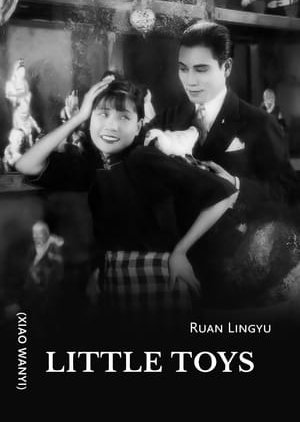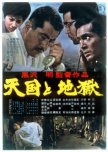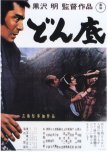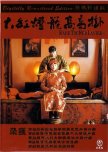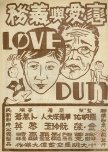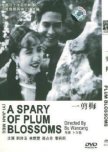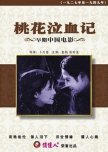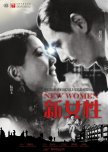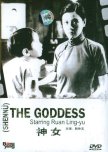
This review may contain spoilers
"They have the strength, the brains, and the will to struggle!"
Little Toys not only told the tale of a passionate and talented young toymaker, but also used the toys she made as an analogy for the war creeping up on her doorstep. The movie was decidedly propagandistic and no wonder with the strain of civil wars being fought at home and a foreign army invading as well. Like many in their situation, movies were not only entertainment, but at times catharsis and a call to arms.Ruan Ling Yu played Sister Ye/Xiu Xiu, a toymaker extraordinaire in an idyllic rural village, whose business kept many people fed. Married to a slovenly, but kind husband, she had two children to care for as well. A handsome engineering student in town fell hard for her, but she refused to run away with him. Always seeing the big picture, she challenged him to finish his degree overseas and return to China to improve their country's industry and help lift the poor out of poverty. Emboldened by her patriotic words he set off to do his duty.
The movie begins with numerous comedic moments, but this is a Ruan Ling Yu film so don't fall for it. She once again played the avatar for the suffering women of China, if not China herself. Despite being loyal and patriotic, not the flawed fallen women she often played, she still met with endless suffering. Along the way she dealt with the death of loved ones, the disappearance of a loved one, civil war, becoming a refugee, competing with cheap foreign goods, the Japanese invasion and the infamous January 28th incident, as well as debilitating PTSD. That was a lot of tragedy to work into one film.
At the time, China was dealing with class issues as well as political ineffectiveness and corruption. To avoid censorship, the name of the invading army was never mentioned. You didn't have to be a history major then or now to know who it was. While some of the speeches meant to inspire felt organic to the scene, some of the leftist and nationalistic speeches could be stilted and rather awkwardly wedged into conversations.
What I found interesting was the use of toys as a metaphor for the soldiers, playthings moved about during war. Scenes of toy guns, tanks, and planes were overlaid with battle scenes. Many of the weapons, planes, and tanks used in the battles resembled the toys previously shown giving the scenes a surreal feeling as toys gave way to deadly reality. Even at the end of the film, Xiu Xiu confused her toys with real soldiers and weapons, calling them to fight.
Ruan Ling Yu gave a nuanced performance exhibiting numerous emotions from gentle caring mother to a woman broken by war and tragedy. She truly was a gifted actress taken from the world too soon. Li Lili, another famous silent film actress, portrayed Xiu Xiu's teenaged daughter. Though not as subtle she also gave an impassioned and at times light-hearted performance.
While Ruan was captivating, wringing as much emotion as she could from each scene, the film felt overly long and disjointed at times. Because it covered so much ground and often glanced quickly over tragedies, I found it difficult to connect emotionally with the large cast. The film felt more important as a historical piece than as a piece of entertainment. When Ruan pierced the crowd around her with a steely gaze at the end of the film and shamed them, declaring they needed to fight for their country's survival and then stared directly into the camera challenging the audience, it crossed over from being a popcorn movie and into a call to arms. There has always been a place for these kinds of propagandistic movies, especially during times of desperate national crisis, it's just best to know what you are going into with this film as it could be heavy-handed at times. To be sure, regardless of your feelings about the subject matter, the film is worthwhile viewing if only to watch one of the few surviving Ruan Ling Yu films.
6/5/23
Was this review helpful to you?

